The United Kingdom has the world’s highest taxes for airline passengers, known as the Air Passenger Duty (APD). In this post, I wanted to look at how the APD works — what is it, how much does it cost, when does it apply, and are there any tricks to minimizing it? The UK has made changes to the APD as of April 2024, so I wanted to go over what those changes mean for passengers.
In this post:
What is the UK Air Passenger Duty?
The UK’s Air Passenger Duty is a steep tax levied on any flight originating in the UK — this means that if you’re simply transiting the UK between other countries on one ticket then you shouldn’t be on the hook for this. Rather it’s charged based on having a journey originating in the UK (even if it’s the return portion of a ticket), regardless of where you’re connecting.
Suffice to say that the UK APD is controversial:
- It’s a tax against those traveling from the United Kingdom, rather than those who simply connect in the United Kingdom, as the latter group doesn’t have to pay this
- High taxes negatively impact demand for air travel, since it makes flying more expensive; airlines serving the UK have long fought against this tax, since it raises the cost of airline tickets
For some historical context, the UK APD was first introduced in 1994 and was intended to raise money for the government. When it was first introduced the tax was £5 for destinations within Europe, and £10 for destinations outside of Europe (as you’ll see below, it has gone way up).
Over the years the tax has almost been viewed as an environmental tax, intended to encourage other forms of transportation. Then again, those are pretty limited if you’re traveling long haul from the UK. From an environmental standpoint, there are two issues with this:
- It does nothing to encourage airlines to invest in more efficient aircraft, since you’d think that would be a consideration in terms of emissions
- If this is about the environment, you’d think transit passengers would be on the hook for this, since they have an even bigger environmental impact when taking two flights
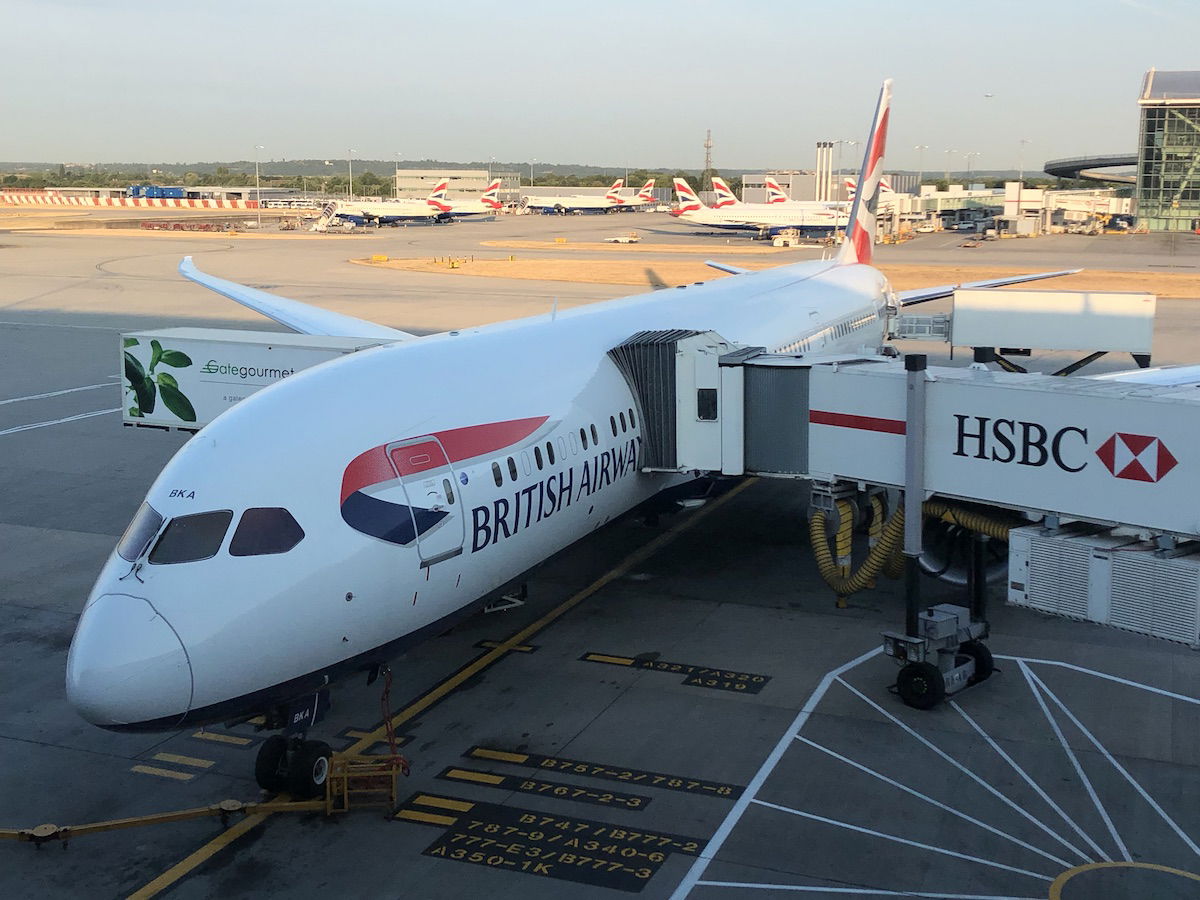
How much is the UK Air Passenger Duty?
The UK Air Passenger Duty amount is broken down based on the distance you’re flying, and the class of service you’re flying in. There are four different pricing bands, and here’s the pricing as of April 1, 2024:
- For domestic flights (only within England, Scotland, Wales, and Northern Ireland), the APD is £7 (~$9) in economy, and £14 (~$18) in a premium cabin
- For international flights of up to 2,000 miles (short haul), the APD is £13 (~$16) in economy, and £26 (~$32) in a premium cabin
- For international flights of 2,001 to 5,500 miles (long haul), the APD is £88 (~$111) in economy, and £194 (~$245) in a premium cabin
- For international flights of more than 5,500 miles (ultra long haul), the APD is £92 (~$116) in economy, and £202 (~$255) in a premium cabin
Now, there are some further details to be aware of:
- For these purposes, a premium cabin would include anything other than economy, so it includes premium economy, business class, and first class
- If you upgrade your seat the higher UK APD applies, which is why many airlines will request a co-pay when upgrading a flight out of the UK (to account for this cost)
- The distance isn’t measured between your origin and destination, but rather between London and the capital city of the country you’re traveling to
- The distance isn’t measured by the distance of your nonstop flight from the UK, but rather by your final destination on your itinerary (assuming continuous travel with no stopovers of more than 24 hours); in other words, the same APD applies whether you fly from London to New York nonstop, or from London to Paris to New York, even though the former itinerary has a much longer nonstop flight out of London
- The UK APD is in addition to any airport taxes and fees, so this isn’t even all you’ll pay in taxes and fees when originating in the UK

When does the UK Air Passenger Duty apply?
Understandably there’s confusion about under what circumstances the UK Air Passenger Duty applies, so let me try to break it down as simply as possible:
- The UK APD applies based on whether you have a flight itinerary originating in the UK; an itinerary is considered to be originating in the UK if you’re on the ground there for more than 24 hours
- The UK APD doesn’t apply for any flights to the UK, as it’s purely a departure tax
- The UK APD doesn’t apply to people who are simply connecting in the UK for under 24 hours on a single ticket
- The UK APD doesn’t apply to children under the age of 16
Let me give some examples, and with each, I’ll explain whether or not the UK APD applies:
- Are you flying from London to Los Angeles? You’ll have to pay the long haul APD
- Are you flying from Los Angeles to London? You won’t have to pay the APD
- Are you flying from New York to London to Paris, and are connecting in London for under 24 hours? You won’t have to pay the APD
- Are you flying from Dubai to London to New York, and are connecting in London for under 24 hours? You won’t have to pay the APD
- Are you flying from London to Amsterdam to Los Angeles, with a connection of under 24 hours in Amsterdam? You’ll pay the long haul APD
- Are you flying from London to Amsterdam to Los Angeles, with a connection of over 24 hours in Amsterdam? You’ll pay the short haul APD
Hopefully that covers most scenarios. As you can see, the APD is calculated based on the final destination of your ticket departing the UK, with continuous travel within 24 hours.
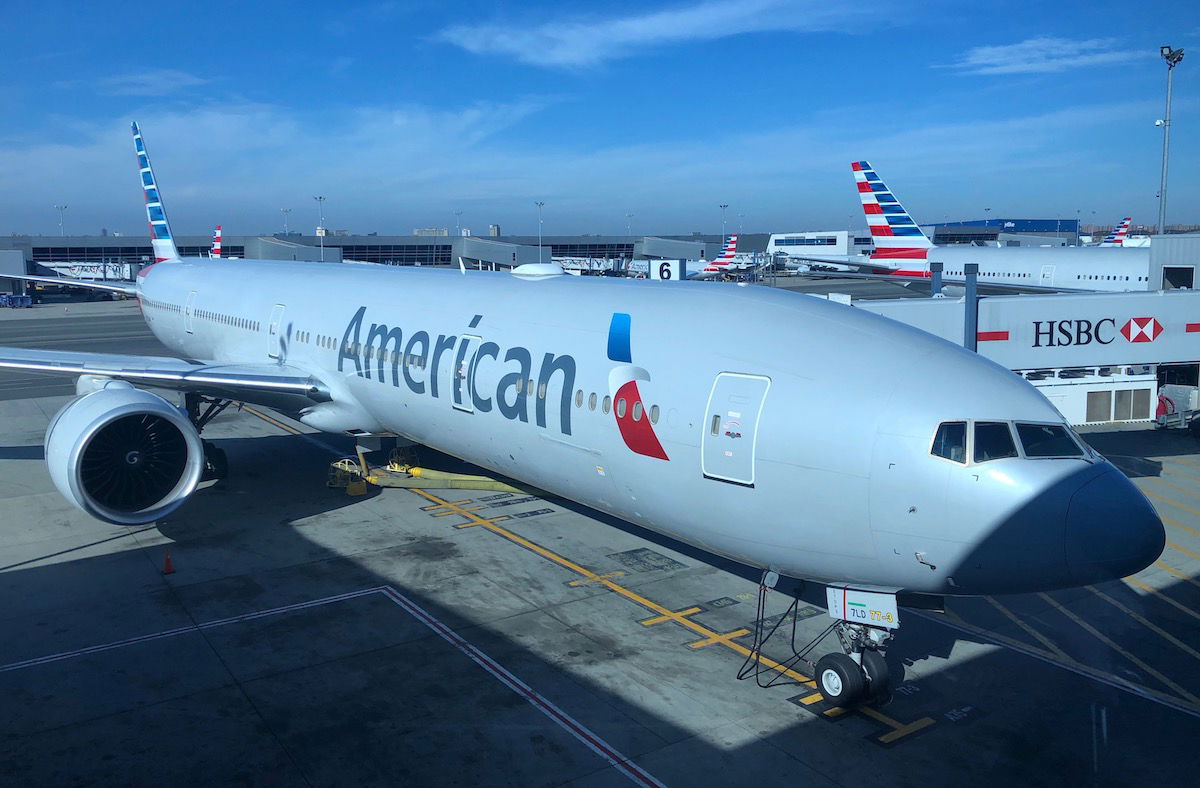
When do you pay the UK Air Passenger Duty?
The UK Air Passenger Duty is collected by airlines directly at the time of booking. So when you book a ticket that’s subjected to the APD, you can expect that your ticket price will include the APD. This isn’t something you have to pay at the airport, or after the fact, for example.
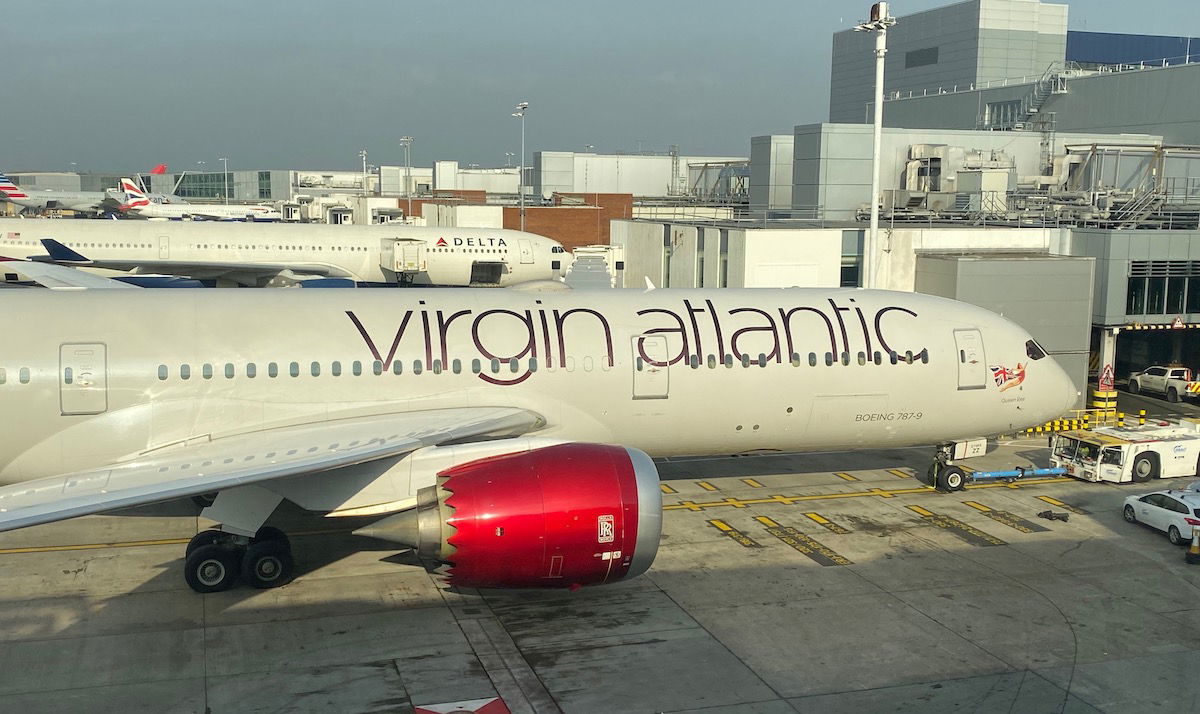
What’s the difference between the UK APD & fuel surcharges?
There’s often confusion about the distinction between the UK Air Passenger Duty and fuel surcharges, given that UK airlines are known for charging both, and it’s also why award tickets originating in the UK can cost so much. Just to clear that up:
- The UK APD is a government-imposed fee that can cost up to £180 on a one-way flight
- Fuel surcharges are imposed directly by airlines, and are a junk fee that has nothing to do with the government
While only some airlines add fuel surcharges (like British Airways), all airlines have to charge their passengers originating in the UK the Air Passenger Duty. Just to give an example of that, say you’re redeeming American AAdvantage miles for business class travel between London and New York.
If you book for travel on American, there are no fuel surcharges, and you’d pay a total of $323.90, which accounts for the UK APD, as well as all the airport taxes and fees (which are on top of the UK APD). Meanwhile, if you were to book British Airways instead, there would be fuel surcharges, and you’d pay $692.70. As you can see, in this case, the fuel surcharges are $368.80.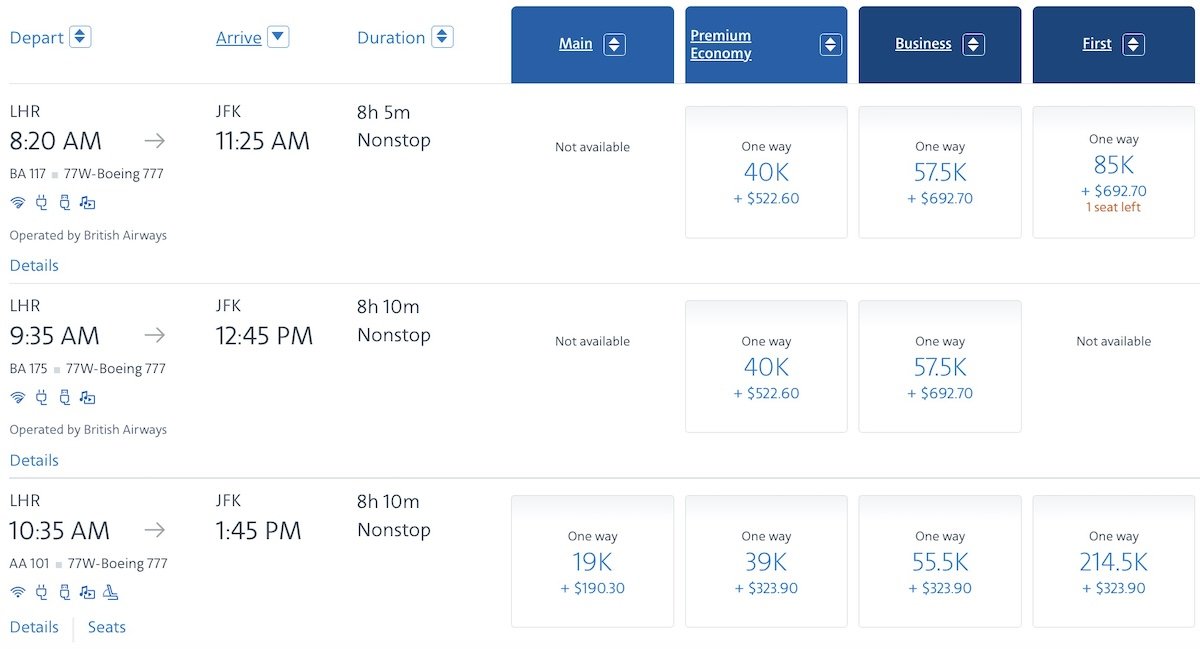
Since this often creates confusion, let’s look at flights in the other direction, from New York to London. If you were to book American, you’d pay just $5.60 in taxes and fees (there are no fuel surcharges or UK APD). Meanwhile, if you booked British Airways, you’d pay $732.30, meaning that the fuel surcharges are $726.70. Yes, fuel surcharges are higher originating in the US than the UK, but there’s still no UK APD here.
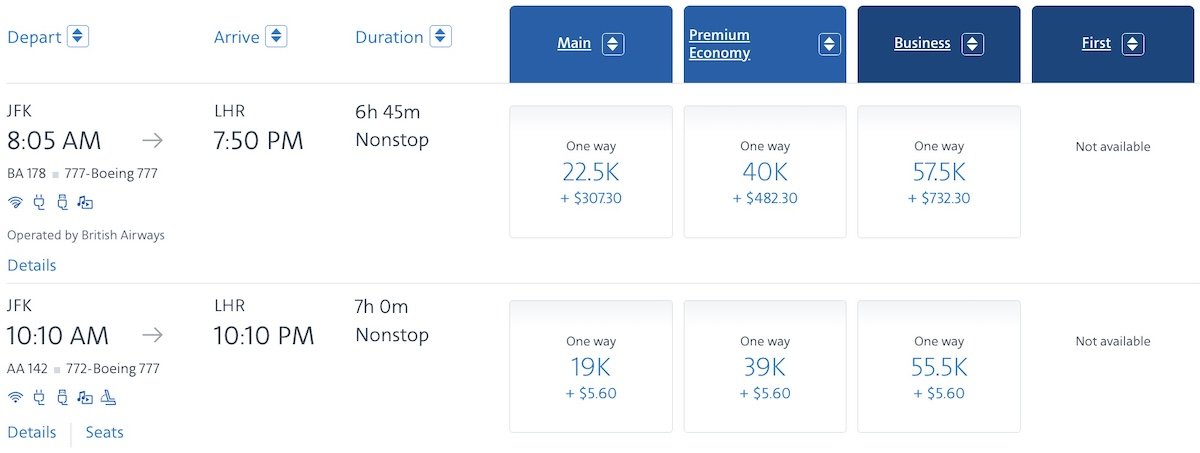
Hopefully, that clears up any confusion regarding the distinction between the UK APD and fuel surcharges.
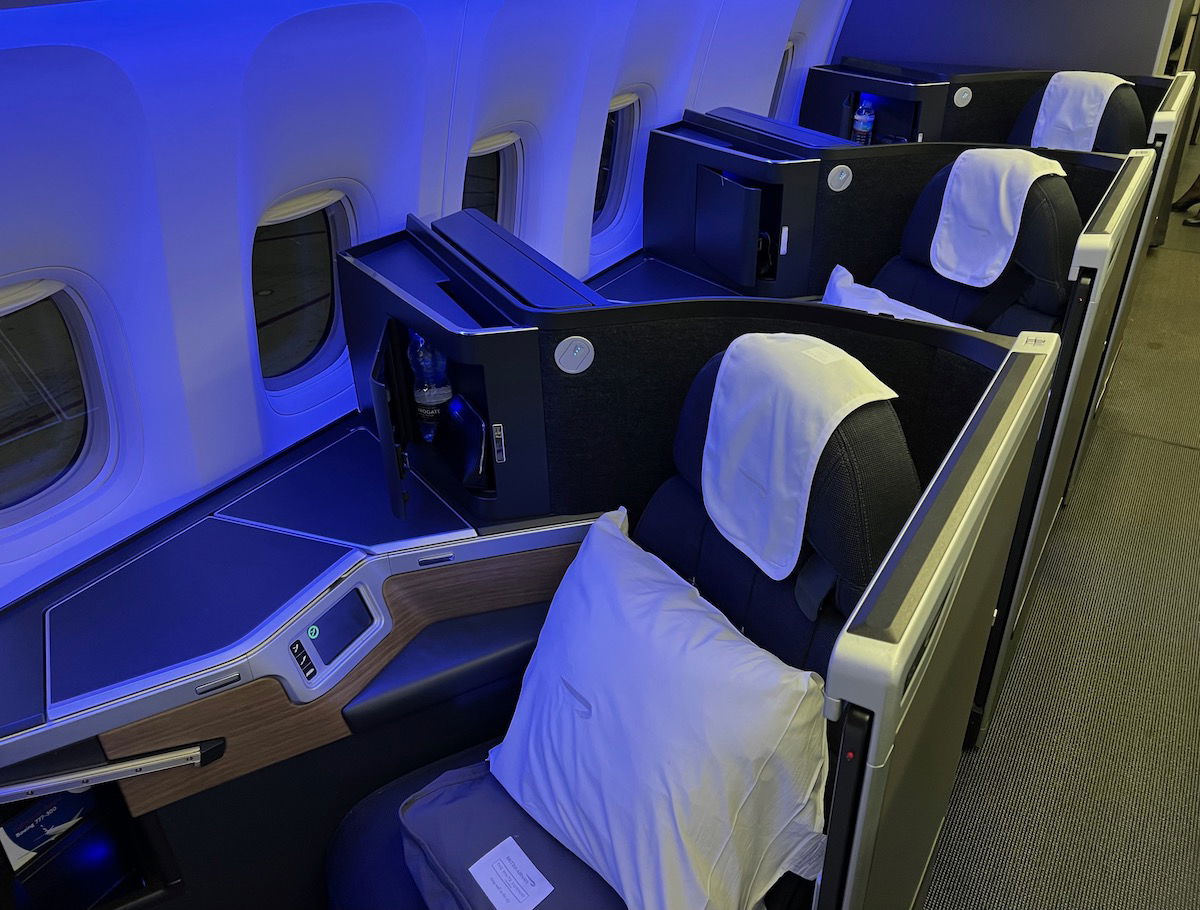
Are there any ways to minimize the UK APD?
There’s no real way to “beat” the UK Air Passenger Duty, though there are some ways to minimize it, or at least be strategic about it. Different people will have different takes on the extent to which these strategies are worth it, but I figure they’re at least worth pointing out. Let me give a few examples.
Plan your stopover strategically
For example, say you’re redeeming British Airways Avios to fly roundtrip from New York to Paris via London, and you plan to have a stopover of more than 24 hours in London in one direction. If you’re going to do that, I’d highly recommend having your stopover in London on the outbound, rather than the return. Why? Because you’d only pay the short haul APD (£26), rather than the long haul APD (£194).
At the point in your itinerary where you’ve been in London for over 24 hours, you’ll be embarking on an itinerary of under 2,000 miles (to Paris), rather than an itinerary of over 2,000 miles (to New York).
Furthermore, if you want to visit London but only briefly, try to plan a stopover of just under 24 hours. That way you can avoid paying the UK APD altogether, all while still visiting the UK for a bit.
Mix economy & business class
When booking award tickets, some people like to travel one direction in business class and one direction in economy class, to splurge without redeeming too many miles. If you’re traveling to & from the UK and are using this strategy, ideally fly business class on your flight to the UK, and economy on your flight from the UK.
For one direction of travel, this would lower your APD from £194 to £88.
Fly out of Inverness
While Inverness is part of the United Kingdom, the Scottish Highlands and Islands are exempt from the UK APD. This is part of an agreement that dates back all the way to 1994, so it’s a nice little loophole. The catch is that not many people would naturally be starting there, and Inverness has fairly limited service.
For example, if you fly from Inverness to London to New York using American AAdvantage miles in business class, you’d pay just $87.80 if your transatlantic flight is on American, while you’d pay just $456.60 if your transatlantic flight is on British Airways.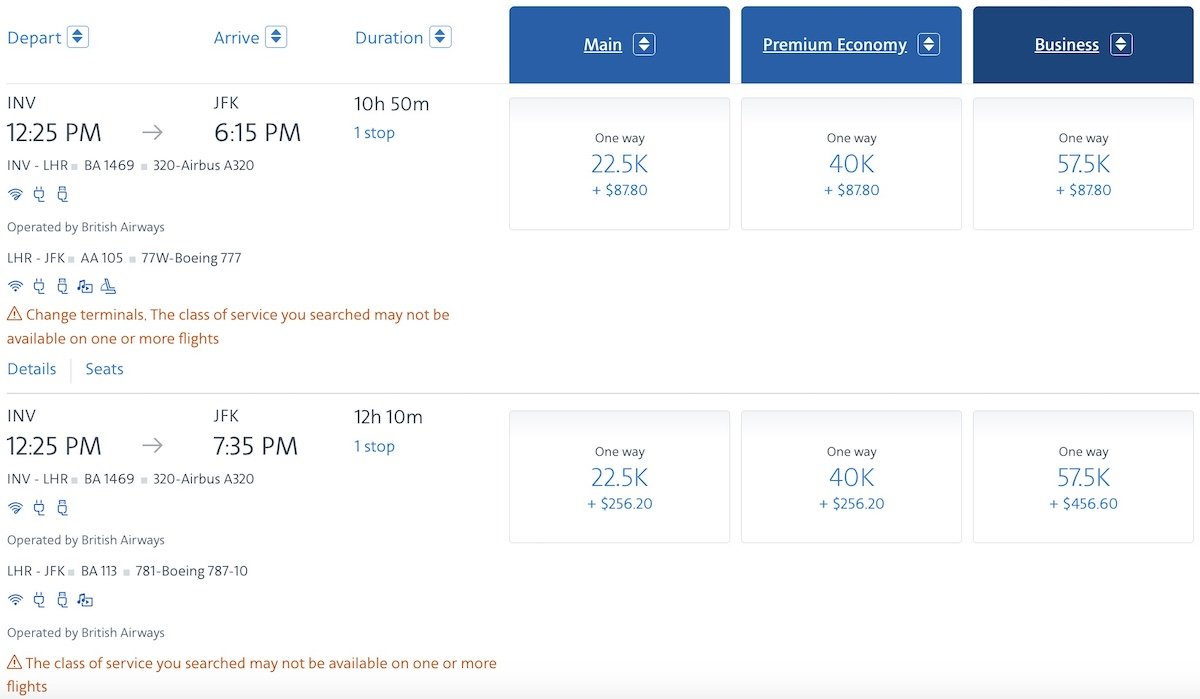
Meanwhile if you just took those same flights from London to New York, without originating in Inverness, you’d pay a total of $323.90 on American or $692.70 on British Airways, accounting for the UK APD.
Position yourself to another country
You can avoid the UK APD by flying out of a country other than the UK, and that could potentially save you quite a bit, especially on a business class ticket. There are a few ways to go about this:
- Some people will position themselves to Dublin to start their itinerary, because flights from Ireland aren’t subjected to the UK APD (and as a bonus, flights out of Ireland are often cheaper than flights out of the UK, even taking that out of the equation); in some cases flights between the UK and Ireland can cost under $20, so this could save you some significant money
- Some frequent flyer programs allow stopovers, including Air Canada Aeroplan, Air France-KLM Flying Blue, and Alaska Mileage Plan, so you can use those strategically; for example, you could fly from London to New York via Amsterdam with a stopover of just 24 hours there, and then you’d only have to pay the short haul APD rather than the long haul APD
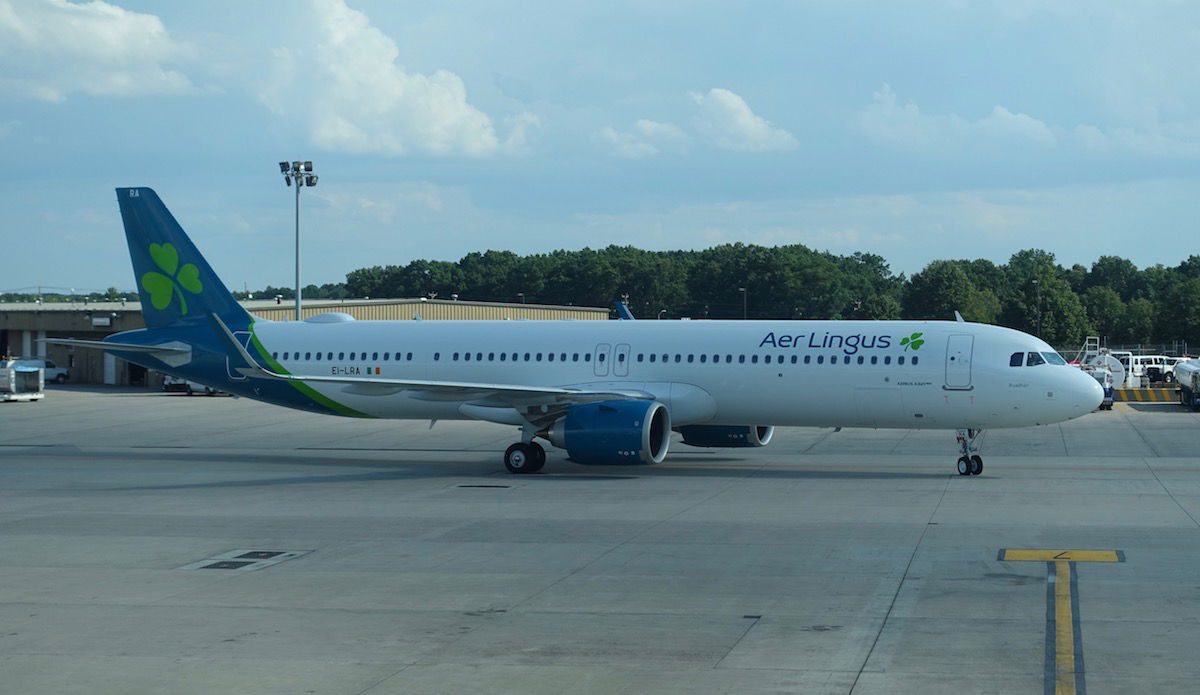
Bottom line
The UK Air Passenger Duty is the world’s highest tax that’s levied on airline passengers. This applies to passengers with itineraries originating in the United Kingdom, and the tax ranges from £13 for an international short haul economy flight, to £202 for an international premium cabin long haul flight.
Hopefully the above provides a useful summary of how this works, and if anyone has any questions, please let me know. While the UK APD can’t be avoided altogether, there are most definitely ways to minimize it.
What has your experience been with the UK APD?
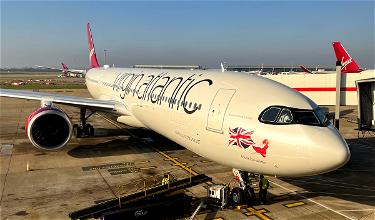

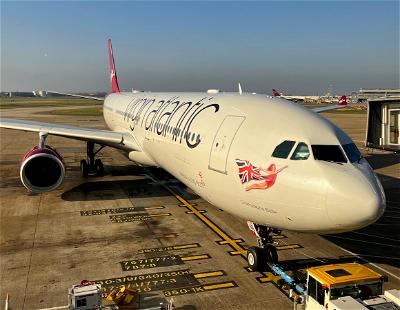
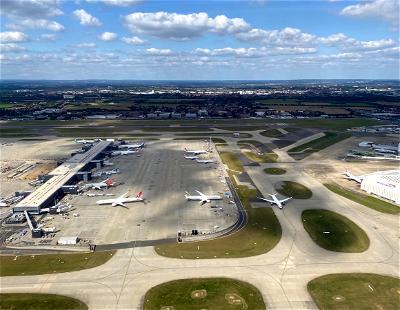
APD is also not payable on DIRECT flights to long haul destinations from Northern Ireland. Although I think in practice the only flight that is long haul out of Belfast is Tui to Orlando/Melbourne.
Perfect example of idiotic government policy.
I have tickets (two passengers) leaving from London next month in premium cabin ... except it's cheaper to take EuroStar to Paris and spend the night, so I booked them from CDG instead.
Airlines are correct that this tax costs then business in the U.K.
Except the data doesn't agree with your conclusion.
LHR has regained its crown as busiest airport in Europe after the COVID bounce. (+28% passenger growth last year, grew almost double the rate of Istanbul, Paris and Amsterdam). LGW was +25%.
The London airports system (LHR, LGW, LCY, STN, LTN, SEN) remains the worlds busiest for air traffic.
Which was the first location JetBlue opted for when flying to Europe? London. And even 2 airports Gatwick...
Except the data doesn't agree with your conclusion.
LHR has regained its crown as busiest airport in Europe after the COVID bounce. (+28% passenger growth last year, grew almost double the rate of Istanbul, Paris and Amsterdam). LGW was +25%.
The London airports system (LHR, LGW, LCY, STN, LTN, SEN) remains the worlds busiest for air traffic.
Which was the first location JetBlue opted for when flying to Europe? London. And even 2 airports Gatwick and Heathrow. This from a value conscious, low fare airline.
Generally (of course there will be examples where it isn't true) air fares are cheaper out of London (even taking into account of APD) because the routes are more competitive than other markets. Particularly routes to North America where the geography also helps (shorter than flying into Europe so airlines use less fuel).
As others said there is marginal impact from APD because passengers are just not elastic in that way.
Great post, SO MANY people in travel groups on FB, Reddit, IG, etc misunderstand the taxes/fees. Then they spread misinformation and say "just don't fly into London!" which is wrong, but also helps me when I need award space.
The UK really is doomed.
The UK is “doomed” because it charges a tax on air travel, which doesn’t attract VAT (levied at 20%)? If you say so…
From this side of the Atlantic, it already is unattractive for leisure travel if you are at all value minded. This will just make the EU even easier to pick over UK.
Not sure that is a well reasoned comment. The £88 is really not massively noticeable in the context of the total spend of a holiday.
Generally airfares to UK are the cheapest available. Flights from North America (and other regions) to London are cheaper than the rest of Europe because it is the most competitive air market in the world and more value options like Norse, JetBlue, WestJet, Aer Lingus, etc. More short haul...
Not sure that is a well reasoned comment. The £88 is really not massively noticeable in the context of the total spend of a holiday.
Generally airfares to UK are the cheapest available. Flights from North America (and other regions) to London are cheaper than the rest of Europe because it is the most competitive air market in the world and more value options like Norse, JetBlue, WestJet, Aer Lingus, etc. More short haul value route options on Ryanair, easyJet, Wizz, etc for short haul than any other European country.
Hotels (which given multiple nights can easily dwarf the spend on a flight) can be cheaper than other European destinations like Paris, Switzerland, Amsterdam, etc. due to much greater supply per capita.
The GBP is relatively good value.
Ha yes the tax really impacts on the country doesn’t it… NOT. Heathrow is busiest airport in Europe despite this tax. The tax itself isn’t that big, my annoyance is the fees and fuel surcharges the airlines add and it’s hidden under the radar of taxes and fees. As Lucky points out be good if the tax actually was related to emissions.
“The UK APD doesn’t apply to people who are simply connecting in the UK for under 24 hours on a single ticket.”
NYC-LON-EDI would attract APD on the LON-EDI domestic sector I believe.
It depends on a complicated combination of when the international flight arrives into the UK and how long the connection window is as to whether APD is triggered on the domestic flight.
I wouldn’t say it’s complicated, no.
If your next flight is >24h later, it’s a stopover and you pay APD.
If your next flight is <24h later, it’s a connection.
But regardless, my point is you pay APD even if you’re connecting (<24h) onto to a domestic flight from an international flight.
The rules about whether a flight is a “connected flight” are not nearly as simple as you imply. For example, if the international flight coming into the UK lands between 4am and 5pm, the domestic leg must take off within 6 hours of the scheduled arrival of the incoming international flight to avoid APD. If you land between 5pm and midnight, you must take off for the next domestic leg before 10am the following day....
The rules about whether a flight is a “connected flight” are not nearly as simple as you imply. For example, if the international flight coming into the UK lands between 4am and 5pm, the domestic leg must take off within 6 hours of the scheduled arrival of the incoming international flight to avoid APD. If you land between 5pm and midnight, you must take off for the next domestic leg before 10am the following day. It is wrong to say you pay APD on domestic flights regardless. Facts do matter.
"Some people will position themselves to Dublin to start their itinerary, because flights from Ireland aren’t subjected to the UK APD ...".
Of course flights from (The Republic of Ireland) are not subject to subject UK APD, Ireland is not part of the UK.
A fallacy with taxation is that if a new tax of $100 is levied on a consumer then that consumer will pay $100 for the good or service.
However, that's not true. If a market is competitive - and air travel from London is extremely so on many routes - then the airline will absorb some of the cost of the new tax via reduced profit margins.
Take, for example, C class fares to the...
A fallacy with taxation is that if a new tax of $100 is levied on a consumer then that consumer will pay $100 for the good or service.
However, that's not true. If a market is competitive - and air travel from London is extremely so on many routes - then the airline will absorb some of the cost of the new tax via reduced profit margins.
Take, for example, C class fares to the Far East from London vs Paris, Amsterdam, Frankfurt, etc. Quite often, fares ex LON are often CHEAPER than competing departure points (or certainly no more expensive), meaning that the full cost of APD is not not being passed on to passengers.
It’s one of the dumbest, most crippling things that the UK has done (right up there with Brexit), so when I fly to see my family in the US, I travel hand baggage only, but position from Europe - usually Scandinavia, Italy, or Switzerland… generally shop around. In Prem. Econ, it routinely saves me £1000+ doing so.
How’s it crippling? As an OMAAT reader who’s UK-based and does at least a dozen long-haul work trips a year, I pay more through this tax than most. I don’t have a problem with it.
My only beef is that it isn’t levied on transfer passengers: a loophole to enable BA to earn more profits, at the cost of more air pollution being breathed in by UK citizens.
As for the old trope about...
How’s it crippling? As an OMAAT reader who’s UK-based and does at least a dozen long-haul work trips a year, I pay more through this tax than most. I don’t have a problem with it.
My only beef is that it isn’t levied on transfer passengers: a loophole to enable BA to earn more profits, at the cost of more air pollution being breathed in by UK citizens.
As for the old trope about all those connecting flights ensuring more air service, which aids the UK economy… Why are more multinationals choosing to locate in Dublin, which has far fewer connections than London? That suggests air connectivity may be one of the lesser reasons for business act
Yeah it really isn't Adam, it may affect you (boohoo) but for the economy and most others it doesn't affect it.
The vast majority of people who can afford premium flight travel aren't giving up spare days (and the risk of travel disruption) to save money.
It's a sensible tax.
Vanishingly few premium class customers are going to go to the to hassle of taking “positioning” flights. This is the preserve of hobbyists with time, but not money, on their side. Business travellers certainly won’t be doing this.
Your LHR-JFK example is misleading because the US levies most federal taxes on international travel upon arrival rather than upon departure, so when flying LHR-JFK you have a double set of both UK and US taxes - while the other way you only pay the TSA screening taxes.
APD is fine but fuel surcharges are hilarious. EK is the worst offender by far. Laughably, criminally high
These are fundamentally different things. One is a government tax (non-hypothecated) and one is airline revenue (i.e. a higher fare disguised / mislabelled as a fuel surcharge). It makes no sense to compare them.
This site has become unusable on a mobile browser with all the video ads.
Thanks for prompting me to download the ad blocker browser
From what I understand the APD is only waived for under 16 year old travelers who ar flying economy. It is not waived for business or First
Hi ugoren,
Welcome to OMAAT! :)
One would think you would pay long-haul tax because you're flying LHR-LAX, and since French Polynesia isn't really "France" (I don't think, but I don't know how overseas territories work with France), but yours is a good question...
Like, when one enters French Polynesia, one doesn't get an EU stamp from France that says "Tahiti" or anything.
The above was meant for ugoren, apologies.
So if flying London-Los Angeles-Papeete (9,550 miles) you pay the short haul tax (by distance to the capital, i.e. Paris)?
Duh ?
You pay the longhaul tax. If you stopover in Paris over 24 hrs or buy split tickets lon-cdg and cdg lax ppt you pay the short haul adp
Ben wrote that the difference to the capital matters, even if not flying to the capital. Papeete is in France, whose capital is Paris. Therefore distance to Paris matters, which is short haul.
Malheureusement Tahiti is not France. Am not sure what it mean by capitals with reference to the tax as it’s based on distance and cabin.
Māuruuru
French overseas departments are governed directly from Paris. Using the "capitol to capitol" definition mentioned by Ben, a flight from the UK to any where in France (including overseas departments) ought to pay APD on the London to Paris distance.
Tahiti is not a good example because it's not an overseas department but a protectorate and I'm not sure whether Paris is considered the capitol or not. A better example would be Réunion.
The capital city of Papeete is Paris, so short haul. This is insane.
No. For APD purposes, HMRC considers the capital to be the capital of the French territory. For example Reunion is St Denis, Saint Barths is Gustavia, Martinique is Fort de France, etc
(Old, but see cchttps://www.aef.org.uk/uploads/HMRC_guidance_on_APD_March_2013.pdf)
It isn't actually cited as capitals anymore but named countries (which will be loosely based on the distance of the capital). The article needs refining as isn't totally correct. Countries are listed into Band A, B and C....
No. For APD purposes, HMRC considers the capital to be the capital of the French territory. For example Reunion is St Denis, Saint Barths is Gustavia, Martinique is Fort de France, etc
(Old, but see cchttps://www.aef.org.uk/uploads/HMRC_guidance_on_APD_March_2013.pdf)
It isn't actually cited as capitals anymore but named countries (which will be loosely based on the distance of the capital). The article needs refining as isn't totally correct. Countries are listed into Band A, B and C. However Territories are still considered separate countries for APD purposes.
Russia is the only country that is split... West of Urals (Moscow) is Band A (short haul). East of Urals is Band B (long haul)
I thought we wanted the rich to pay their fair share in the progressive world. Any business class passenger, by world-wide income levels is very well off. Quit complaining and get with the program.
(Actually, I almost always arrange to avoid it too)
At the end of the day, it's a departure tax (albeit a very complicated departure tax). There are several other countries that impose departure taxes. Is the issue that the UK's is too high?
Staying in Paris or Amsterdam a night is also another way to avoid it traveling to the US (if your best option to the US is not direct from those destinations). It's usually cheaper to fly to Amsterdam, pay for a decent hotel and good dinner and then fly biz AMS-LHR-USA than it is to fly biz LHR-USA (and having to pay the additional taxes)
You can also avoid it the long haul charge on...
Staying in Paris or Amsterdam a night is also another way to avoid it traveling to the US (if your best option to the US is not direct from those destinations). It's usually cheaper to fly to Amsterdam, pay for a decent hotel and good dinner and then fly biz AMS-LHR-USA than it is to fly biz LHR-USA (and having to pay the additional taxes)
You can also avoid it the long haul charge on say, LHR-MAD-MIA, of course, by not buying two tickets instead of one thru ticket. In this example, if booked thru Iberia, they can check through your baggage so you don't have to collect it in Madrid (though sometimes they also won't do this, particularly if the airline differs e.g., AA from MAD-MIA or if you booked it thru a different channel i.e. book one ticket on Iberia, the other on aa.com)
Then you would spend the difference on accommodation and food if you stop over 24 hrs so what’s the point ?
You get something enjoyable in return… as opposed to simple taxation.
That being said, if you’re already in Amsterdam/Paris… just fly from AMS/CDG direct to USA on Day 2. Why bother going back via London at all?
Brilliant summary, Ben. As someone who travels to the UK fairly often, I like to end my visit with at least a night or two in Ireland to help with this. There are five million flights per day from Dublin to Heathrow so the connection part is never an issue.
5 millions flights per day? That would be 1388 per minute. Is it true?
Lucky, have you ever looked up Pakistan’s taxes for business and first class? Those blow this away.
Short version: It's a complicated ripoff.
Ripoff Britain is not a new concept.
Would it be better if APD were abolished and 20% VAT levied instead? Would that be less of a rip-off?